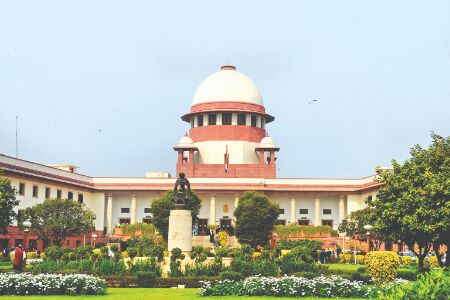Covid patients treated as untouchables with posters pasted outside their homes: SC

New Delhi: The Supreme Court on Tuesday said once posters are pasted outside the homes of COVID-19 patients, these people are treated as "untouchables", reflecting a different "ground reality".
The Centre informed the Apex Court that although it has not prescribed this rule, the practice has nothing to do with "stigmatising" Covid patients as it is aimed at protecting other people.
A bench of Justices Ashok Bhushan, R Subhash Reddy and M R Shah said the ground reality is "something different" and as once such posters are pasted at their homes, they are treated as untouchables.
Solicitor General Tushar Mehta, appearing for the Centre, said some states on their own are pursuing this practice to prevent the spread of the virus.
Mehta said the Centre has filed its reply to the plea in pursuance of the top court's direction asking it to consider issuing nationwide guidelines to do away with the practice of pasting posters outside the homes of COVID-19 patients.
The top court on November 5 had asked the Centre to consider issuing the guidelines to do away with the practice of pasting posters outside the homes of COVID-19 patients.
It had directed so without issuing any formal notice to the Centre on one Kush Kalra's plea seeking framing of the guidelines.
The bench had observed that when the Delhi government has agreed in the high court not to paste posters, why cannot the Centre come up with guidelines dealing with the matter for the entire country.
On November 3, the AAP government had told the Delhi High Court that it has instructed all its officials not to paste posters outside homes of COVID-19 positive persons or those in home isolation; and the ones pasted have been ordered to be removed.
The government had told the high court that its officials have also not been allowed to share details of Covid positive persons with their neighbours, resident welfare associations or WhatsApp groups.
The petition had stated that COVID-19 positive persons "ought to be given privacy to cope with and recover from the illness in peace and away from prying eyes". "Rather, they are being made the centre of public attention...," it had said.



